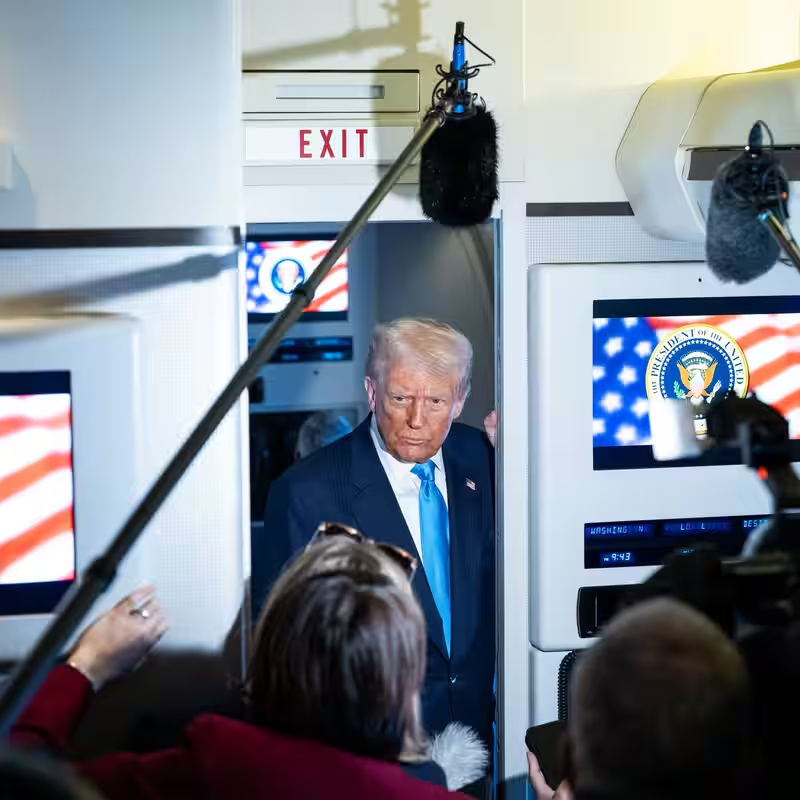Trump Hints He Knows a Third Term Is Off the Table
In a rare moment of apparent concession, former President Donald J. Trump suggested this week that he understands the constitutional barrier preventing him from serving a third term as president—despite months of public musings to the contrary. “It’s too bad,” he reportedly said, offering a glimpse into a more pragmatic side of the man who has dominated Republican politics for nearly a decade.
Table of Contents
- Trump’s “It’s Too Bad” Remark
- What the 22nd Amendment Really Says
- Months of Third-Term Speculation
- Why This Matters for 2028
- How Voters and Pundits Are Reacting
Trump’s “It’s Too Bad” Remark
During a private gathering with donors in Florida on Tuesday, Trump was asked directly whether he believed he could legally run for a third term. According to two attendees who spoke on condition of anonymity, Trump paused, then said, “Look, I know what the Constitution says. It’s too bad.” The comment marks a notable shift from his previous public flirtations with the idea, which had raised eyebrows across the political spectrum.
What the 22nd Amendment Really Says
The U.S. Constitution’s 22nd Amendment, ratified in 1951 after Franklin D. Roosevelt’s four terms, clearly states: “No person shall be elected to the office of the President more than twice.” Legal scholars universally agree this applies to Trump, who served one full term (2017–2021) and lost his 2020 re-election bid. Even if he wins in 2024, a 2028 run would be unconstitutional.
Some Trump allies had floated fringe legal theories suggesting the amendment might not apply if his first term was “interrupted”—a notion widely dismissed by constitutional experts as baseless.
Months of Third-Term Speculation
Since early 2025, Trump has repeatedly teased the possibility of a third term during rallies and media appearances. In March, he told a crowd in Iowa, “They say I can’t do it—but who’s going to stop me?” In July, he joked on Truth Social, “Maybe we’ll find a loophole. I’ve got the best lawyers.” These comments fueled speculation that he was testing the waters for a post-2024 power play, possibly grooming a successor—or laying groundwork for an unprecedented constitutional challenge.
Why This Matters for 2028
If Trump is indeed stepping back from the third-term fantasy, it could reshape the Republican field for the 2028 presidential race. Potential successors like Ron DeSantis, Vivek Ramaswamy, and even Trump’s own vice president, J.D. Vance, may now feel freer to position themselves as the heir apparent without fear of direct competition from the former president.
Political analysts note that Trump’s comment may also be strategic—softening his image as a norm-breaker while still maintaining influence over the party’s direction.
How Voters and Pundits Are Reacting
Reactions have been mixed. Some Democrats welcomed the remark as a sign that Trump respects constitutional guardrails, however belatedly. “Better late than never,” tweeted Rep. Jamie Raskin, a constitutional law scholar.
But many Trump supporters expressed disappointment. “He could’ve changed the rules,” one wrote on X (formerly Twitter). Meanwhile, conservative legal commentators praised the acknowledgment as a return to constitutional fidelity.
Regardless of motive, the statement adds a new layer to Trump’s complex legacy—one that blends ambition, populism, and now, perhaps, a reluctant acceptance of limits.
Sources
- The New York Times: Trump Suggests He Knows He Can’t Run Again: ‘It’s Too Bad’
- National Archives: 22nd Amendment to the U.S. Constitution
- Legal analysis from the Congressional Research Service and constitutional scholars at Harvard Law School




